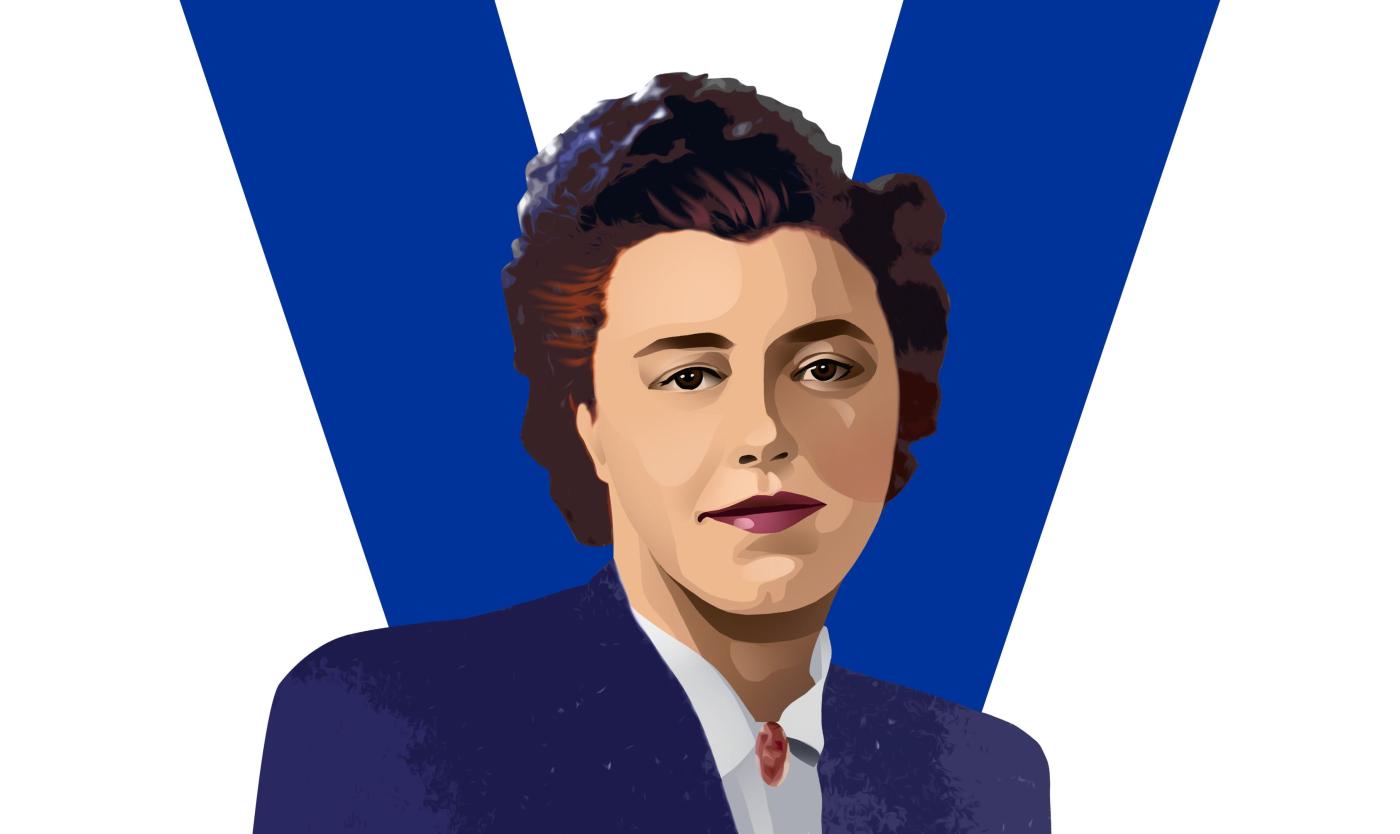
Yvonne Nèvejean
1900 - 1987
Yvonne Nèvejean, head of the National Work for Child Welfare during WWII, together with the Jewish Defense Committee, helped around 4,000 Jewish children hiding and surviving.
Yvonne Nèvejean was born on 15 October 1900 and was brought up by her mother, following the early death of her father. After training as a social worker in 1922 and a study trip to the US, she joined the child welfare agency NWK, the forerunner of today’s Kind & Gezin. This organisation, founded in 1919, became Belgium’s largest child welfare organisation. In 1940, she became the first woman to lead the NWK, and she used her position during the war to help all children, including Jewish children.
From 1942, the occupying forces excluded Jewish mothers from consultations at the NWK. The organisation, working with the Association of Jews in Belgium (VJB), found ways to provide Jewish mothers and their children with proper care. NWK nurses worked day and night to accomplish this mission.
In reaction to the Nazi round-ups, in the summer of 1942 the VJB established orphanages for Jewish children. These orphanages were placed on a list of recognised institutions by Yvonne, so they could receive subsidies. Despite a promise by the Germans never to deport Jewish orphans, in October 1942 they sent several staff members and 58 children from the home in Wezembeek-Oppem to the Dossin barracks in Mechelen. The official nature of the orphanage allowed Yvonne to intervene and they were freed.
Because of the unsafety of the homes, the children’s section of the Jewish Defence Committee (JVC) sought hiding places. Yvonne became involved and was able to help many children go into hiding through the NWK network. She was in close contact with the indefatigable Yvonne Jospa, who acted as an “address book for hiding children”.
Yvonne was closely involved in these clandestine operations. She was able to count on the support of a number of NWK staff members, who supervised children or acted as travelling nurses. In addition, she offered the headquarters of the NWK as a meeting room for the JVC and a temporary residence for Jewish children. She falsified the numbers of children in official residences in order to receive extra subsidies and ration coupons for the illegal orphanages.
She also maintained contacts with banking institutions and the Belgian government-in-exile through her role as a lieutenant in the Intelligence and Action Service Tournay, where she was responsible for keeping secret archives and copying messages between London and Belgium.
Remarkably, Yvonne Nèvejean was never arrested, although the German secret police interrogated her several times. With the JVC, she rescued some 4,000 children.
After the war, her bravery and dedication were recognised with several awards, including the honour of Knight in the Order of Leopold by the Belgian King and the title of Righteous Among the Nations by Yad Vashem, Israel’s official memorial to the victims of the Holocaust. Despite this recognition, she remained modest and declined any attention.
Sources
- Bimbenet, Axel, ‘Wie is Yvonne Nèvejean, de ‘Belgische Schindler’ waarnaar het peloton van prins Gabriël werd genoemd? “Van dit soort aandacht hield ze niet”’, Het Laatste Nieuws, 15 October 2022, https://www.hln.be/brussel/wie-is-yvonne-nevejean-de-belgische-schindler-waarnaar-het-peloton-van-prins-gabriel-werd-genoemd-van-dit-soort-aandacht-hield-ze-niet~a11d562a/, consulted on 1 May 2024.
- Carmone, Romane, ‘Yvonne Nèvejean’, Belgium WWII, s.d., https://www.belgiumwwii.be/nl/belgie-in-oorlog/persoonlijkheden/nevejean-yvonne.html, consulted on 1 May 2024.